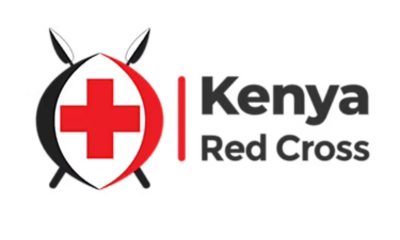United Nations
UN Advocacy Week: A glimpse into global LGBTIQ+ challenges
Outright International this month brought 24 activists to New York

“What has the United Nations ever done for us?” Maybe not quite that bluntly, but at Outright International, we are often asked that question. LGBTIQ persons want to know what the world’s only truly universal global organization is doing for their lives and safety.
The profound and beautiful commitments of the United Nations that “all persons are born free and equal” and that “nobody should be left behind” should apply to all people, including LGBTIQ persons.
The sad reality is that LGBTIQ persons are actually neither free nor equal, and they are consistently left behind, either on purpose or by accident. LGBTIQ activists around the world work tirelessly to change the laws, policies, and society’s attitudes in homes and communities in the 193+ countries of the world.
They are supported by a global framework of law and standards at the United Nations that says, “you too are included, you too matter, you too are worthy.” Even when your country fails you, you can point to the United Nations to say that we all agreed that things should be better.
The clear inclusion of LGBTIQ persons in the international framework has not always been the case. It took decades of advocacy for the UN to say that we, too, are worthy of respect and protection simply because of who we are and whom we love. And now, powerful forces are at work trying to set the clock back, unraveling the promise of inclusion that we have fought for so hard.
We need to preserve and deepen the inclusivity of the international standards that hold our governments to account. And we need to keep reminding the United Nations of the realities that LGBTIQ persons face in all parts of the world.
At Outright International, one way we do this is each year by bringing LGBTIQ activists to the United Nations headquarters for a week of targeted meetings with various parts of the United Nations and the representatives of the world’s governments based here, guiding the setting of international standards.
This year 24 activists from around the world came to NYC for Advocacy Week: Five trans activists, three intersex activists, four from the Middle East and North Africa; six working on lesbian, bisexual, and queer (LBQ) women issues; seven from countries in Africa where aggressive anti-LGBTIQ laws are being passed, three from countries with extreme repression of civil society; 17 from countries that criminalize us.
The week was filled with intense discussions, emotional storytelling, and strategic planning. Meeting activists from diverse backgrounds highlighted the global nature of the struggle for LGBTIQ rights. Each personal account of the lived experiences of LGBTIQ people underscores the universal quest for dignity and equality. The significance of this week cannot be overstated — it was a true beacon of hope, a testament to our shared commitment to advancing LGBTIQ rights worldwide.
The week’s emotional impact was profound. Hearing activists recount their personal and shared experiences of discrimination, violence, and resilience was both heartbreaking and inspiring. These stories testify to the human spirit’s capacity to endure and fight against oppression. They remind us that behind every statistic, there are real people whose lives are affected by our collective actions.
Several key themes emerged during the week. One prominent discussion was the shrinking civic space for LGBTIQ advocacy. Activists from countries experiencing the influence of anti-rights actors on public policy shared harrowing accounts of how restrictive laws, violent attacks, and state-sponsored discrimination are impacting LGBTIQ communities. These stories highlighted the urgent need for international solidarity and robust advocacy to strengthen legal protections.
Another critical theme was the role of the United Nations in addressing human rights issues. Activists emphasized the importance of UN institutions recognizing and affirming the rights of all people, regardless of sexual orientation, gender identity, or expression and sex characteristics. Engaging directly with state missions allowed activists to advocate in person for inclusive policies and greater protections at the international level.
This year, activists representing the transgender community in the Philippines and the broader LGBTIQ+ community in the Bahamas participated in a panel discussion with Maria Sjödin, Outright’s executive director. The discussion focused on this year’s IDAHOBIT theme, “No One Left Behind: Equality, Freedom, And Justice For All.” The panelists shared the unique experiences of LBQ and transgender women and the impact of criminalizing legislation on societal acceptance of LGBTIQ+ persons in former colonies of the United Kingdom.
During a meeting with the UN Under Secretary General (USG) Guy Ryder and the UN Assistant Secretary General for Human Rights Ilze Brands-Kehris, the activists were also able to directly engage and share information on LGBTIQ+ community experiences of human rights violations and the threats to human rights defenders and their mobility of the movement. USG Ryder emphasized the importance of considering broader contexts of conflict influenced by pushbacks against human rights and civil liberties. The USG held that the United Nations remains deeply committed to protecting LGBTIQ persons from discrimination, as reflected in their message for IDAHOBIT. USG Ryder also mentioned that the upcoming UN Summit for the Future in September will see the adoption of a Pact for the Future, incorporating gender and human rights considerations.
The voices of the activists were the heart of Advocacy Week. We were particularly moved by the story of a transgender woman from the Philippines who spoke about the dual struggle of facing both legal discrimination and societal stigma as a trans woman herself and a movement leader. Her courage in sharing her story was a powerful reminder of the personal stakes in our fight for equality. Similarly, an intersex activist highlighted the medical abuses faced by intersex individuals, including unnecessary surgeries and a lack of essential healthcare. These testimonies were not just stories of struggle; they were calls to action, urging us all to continue fighting for a world where everyone can live freely and safely.
The current global landscape for LGBTIQ individuals is fraught with challenges. At least 65 countries still have national laws that criminalize same-sex relations between consenting adults, and in 13 countries, transgender identity and expression are criminalized. Anti-gender and anti-human rights sentiments are on the rise in many parts of the world. These harsh realities underscore the importance of continued advocacy and learning about how we can impact LGBTIQ rights. Advocacy Week provided a critical platform for discussing strategies to counter these issues.
We explored ways to strengthen international alliances, leverage diplomatic channels, and use collaborative strategies to amplify our message.
Individuals and communities can take several actionable steps to support LGBTIQ rights and contribute to positive change: Advocate for inclusive policies, educate and raise awareness, support LGBTIQ organizations, challenge discrimination, and engage politically by voting for and supporting political candidates who champion LGBTIQ rights.
The path ahead requires persistent and unified action to ensure that the rights of every individual are recognized and protected. The work of organizations like Outright International and the dedication of LGBTIQ activists worldwide are crucial in driving this change, fostering a world where equality, freedom, and justice truly leave no one behind.
As we reflect on the outcomes of Advocacy Week, it is clear that the fight for LGBTIQ rights requires persistent and unified action. We urge readers to support LGBTIQ organizations, participate in advocacy efforts, and stand in solidarity with our global community. Your voice can make a difference in ensuring that everyone, regardless of their identity, is treated with dignity and respect.
At Outright International, these are the issues that we engage and highlight. Outright International is a founding member and current secretariat for the UN LGBTI Core group, an informal group comprising 42 member states, the delegation of the EU, the Office of the UN High Commissioner for Human Rights, as well as Human Rights Watch, and Outright International. The Core Group is committed to advancing the rights of LGBTIQ persons through multilateral advocacy within the United Nations.
Thiruna Naidoo (she/her) is Outright International’s program officer for Africa based in Pretoria, South Africa. They support the Outright Africa team in developing advocacy initiatives for OutRight’s Africa regional programming, with a focus on expanding Southern African programming. Previously, they have worked as a program officer, litigation coordinator, and co-project manager in the non-profit world.
André du Plessis (he/him) is Outright’s UN Program Director. André was ILGA World’s executive director from 2017 to 2021 before becoming an independent consultant on LGBTIQ human rights. Born in Zambia, André is South African, Swiss, and British, and grew up in the UK and India before studying law at the University of Cambridge and UCL. He lives in New York, having moved to the US in 2023 to be with his husband. He enjoys hiking, cycling, trail running, reading, and cooking in his spare time.
United Nations
Trump pulls Elise Stefanik’s UN ambassador nomination
Republicans have slim majority in US House of Representatives

President Donald Trump on Thursday withdrew U.S. Rep. Elise Stefanik (R-N.Y.)’s nomination to become the next U.S. ambassador to the U.N.
The Associated Press noted Trump in a Truth Social post said it was “essential to maintain every Republican seat in Congress.”
Republicans currently have a narrow 218-213 majority in the U.S. House of Representatives. Special elections to fill the seats that National Security Adviser Mike Waltz and former U.S. Rep. Matt Gaetz (R-Fla.) vacated when they joined the Trump-Vance administration and resigned respectively will take place on April 1 in Florida.
“Elise Stefanik is truly a great leader and a devoted patriot,” said House Speaker Mike Johnson (R-La.) in a statement. “Today’s selfless decision shows America what those of us who work with her already know. She is deeply devoted to her country and fully committed to see President Trump’s agenda succeed in Congress.”
“It is well known Republicans have a razor-thin House majority, and Elise’s agreement to withdraw her nomination will allow us to keep one of the toughest, most resolute members of our conference in place to help drive forward President Trump’s America First policies,” he added. “There is no doubt she would have served with distinction as our ambassador to the United Nations, but we are grateful for her willingness to sacrifice that position and remain in Congress to help us save the country.”
Stefanik, 40, has represented New York’s 21st Congressional District since 2015. She later became chair of the House Republican Conference.
Stefanik in 2019 voted for the Equality Act, but she opposed it in 2021. Stefanik in 2022 is among the dozens of Republicans who voted for the Respect for Marriage Act that then-President Joe Biden signed.
Stefanik, among other things, has also been outspoken against antisemitism on college campuses.
Trump has not said who he will nominate to become U.N. ambassador. Johnson in his statement said he will “invite her to return to the leadership table” of the House Republican Conference “immediately.”
United Nations
US withdraws from UN LGBTI Core Group
State Department: Decision ‘in line with the president’s recent executive orders’

The U.S. has withdrawn from a group of U.N. member states that have pledged to support LGBTQ and intersex rights.
The U.N. LGBTI Core Group formed in 2008.
Chile and the Netherlands are the current co-chairs. Albania, Argentina, Australia, Belgium, Bolivia, Brazil, Cabo Verde, Canada, Colombia, Costa Rica, Croatia, Denmark, the Dominican Republic, Ecuador, Finland, France, Germany, Honduras, Iceland, Ireland, Israel, Italy, Japan, Luxembourg, Malta, Mexico, Montenegro, Nepal, Peru, New Zealand, North Macedonia, Norway, Portugal, South Africa, Spain, Sweden, Timor Leste, the U.K., and Uruguay are members.
The EU, the U.N. High Commissioner for Human Rights, Human Rights Watch and Outright International are observers.
“The overarching goal of the UN LGBTI Core Group in New York is to work within the United Nations framework on ensuring universal respect for the human rights and fundamental freedoms for all, specifically lesbian, gay bisexual, transgender, and intersex (LGBTI) persons, with a particular focus on protection from violence and discrimination,” states the Core Group’s website.
The Core Group also has three specific objectives:
• Raising awareness about LGBTI issues
• Contributing to multilateral work and negotiations at the United Nations
• Seeking common ground and engaging in a spirit of open, respectful and constructive dialogue and cooperation with UN member states and other stakeholders outside the Core Group.
The promotion of LGBTQ and intersex rights were a cornerstone of the Biden-Harris administration’s foreign policy.
Former first lady Jill Biden last September spoke at a Core Group event that took place on the sidelines of the U.N. General Assembly. Former President Joe Biden was vice president in 2016 when he spoke at a Core Group event that coincided with that year’s U.N. General Assembly.
President Donald Trump since he took office on Jan. 20 has signed a number of executive orders that have targeted the LGBTQ and intersex community. These include the “Defending Women from Gender Ideology Extremism and Restoring Biological Truth to the Federal Government” directive that, among other things, bans the State Department from issuing passports with “X” gender markers.
A directive that Secretary of State Marco Rubio issued bans embassies and other U.S. diplomatic institutions from flying the Pride flag. (Joe Biden in March 2024 signed a government spending bill with a provision that banned Pride flags from flying over U.S. embassies.)
The Associated Press last week reported the Trump-Vance administration has terminated 90 percent of the U.S. Agency for International Development’s foreign aid contracts. Activists with whom the Washington Blade has spoken in previous weeks say the White House’s decision to freeze nearly all U.S. foreign aid spending has been “catastrophic” for the global LGBTQ and intersex rights movement.
A source told the Blade the U.S. withdrew from the Core Group on Feb. 14. A State Department spokesperson on Saturday confirmed the withdrawal, but did not specify the specific date.
“In line with the president’s recent executive orders, we have withdrawn from the U.N. LGBTI Core Group,” said the spokesperson.
United Nations
Elise Stefanik pledges to advance ‘America First’ agenda at UN
Senate Foreign Relations Committee held confirmation hearing on Tuesday

The Senate Foreign Relations Committee on Tuesday held U.S. Rep. Elise Stefanik (R-N.Y.)’s confirmation hearing to become the next U.S. ambassador to the U.N.
The New York Republican did not specifically discuss LGBTQ or intersex rights, but in her opening statement she said President Donald Trump after he nominated her “shared with me that he sees great promise in the United Nations if it focuses on its founding mission of international peace and security.”
“President Trump has long advocated for peace and no wars,” said Stefanik. “He delivered the Abraham Accords (the 2020 agreement in which Bahrain, the United Arab Emirates, and Morocco normalized relations with Israel), the largest step to regional peace in a quarter century.”
“If confirmed, I will work to ensure that our mission to the United Nations serves the interests of the American people and represents President Trump’s America First peace through strength foreign policy,” she added.

Stefanik, 40, has represented New York’s 21st Congressional District since 2015. She later became chair of the House Republican Conference.
Stefanik in 2019 voted for the Equality Act, but she opposed it in 2021. Stefanik in 2022 is among the dozens of Republicans who voted for the Respect for Marriage Act that then-President Joe Biden signed.
Stefanik, among other things, has also been outspoken against antisemitism on college campuses.
U.S. Sen. Dave McCormick (R-Pa.) on Tuesday asked Stefanik about what he described as antisemitism and “anti-Israel bias” at the U.N.
“If you look at the antisemitic rot within the United Nations, there are more resolutions targeting Israel than any other country, any other crisis, combined,” said Stefanik.
“We need to be a voice of moral clarity,” she added.
The hearing took place less than a day after the Senate confirmed Secretary of State Marco Rubio.
-

 Virginia3 days ago
Virginia3 days agoYoungkin calls on gay Va. GOP LG candidate to exit race over alleged ‘porn’ scandal
-

 Commentary5 days ago
Commentary5 days agoA conversation about queers and class
-

 Kenya5 days ago
Kenya5 days agoKenya Red Cross-owned hotel to host anti-LGBTQ conference
-

 Opinions4 days ago
Opinions4 days agoNavigating employer-sponsored health insurance, care












